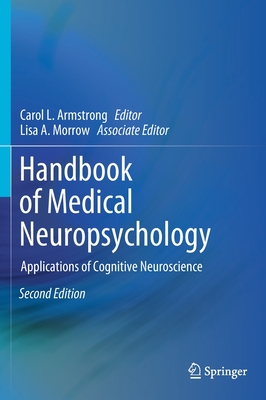-
出版商:
Springer
-
出版日期:
2014-01-17
-
售價:
$15,190
-
貴賓價:
9.8 折
$14,886
-
語言:
英文
-
頁數:
527
-
裝訂:
Quality Paper - also called trade paper
-
ISBN:
1461491401
-
ISBN-13:
9781461491408
-
相關分類:
人工智慧、Data Science
商品描述
With the aging of the baby boomers and medical advances that promote longevity, older adults are rapidly becoming the fastest growing segment of the population. As the population ages, so does the incidence of age related disorders. Many predict that 15% - 20% of the baby-boomer generation will develop some form of cognitive decline over the course of their lifetime, with estimates escalating to up to 50% in those achieving advanced age. Although much attention has been directed at Alzheimer's disease, the most common form of dementia, it is estimated that nearly one third of those cases of cognitive decline result from other neuropathological mechanisms. In fact, many patients diagnosed with Alzheimer's disease likely have co-morbid disorders that can also influence cognition (i.e., vascular cognitive impairment), suggesting mixed dementias are grossly under diagnosed. The Clinical Handbook on the Neuropsychology of Aging and Dementia is a unique work that provides clinicians with expert guidance and a hands-on approach to neuropsychological practice with older adults. The book will be divided into two sections, the first addressing special considerations for the evaluation of older adults, and the second half focusing on common referral questions likely to be encountered when working with this age group. The authors of the chapters are experts and are recognized by their peers as opinion leaders in their chosen chapter topics. The field of neuropsychology has played a critical role in developing methods for early identification of late life cognitive disorders as well as the differential diagnosis of dementia. Neuropsychological assessment provides valuable clinical information regarding the nature and severity of cognitive symptoms associated with dementia. Each chapter will reinforce the notion that neuropsychological measures provide the clinician with sensitive tools to differentiate normal age-related cognitive decline from disease-associated impairment, aid in differential diagnosis of cognitive dysfunction in older adults, as well as identify cognitive deficits most likely to translate into functional impairments in everyday life.
商品描述(中文翻譯)
隨著嬰兒潮一代的老齡化以及促進長壽的醫療進步,老年人迅速成為人口中增長最快的群體。隨著人口的老化,與年齡相關的疾病發生率也在上升。許多人預測,15% - 20%的嬰兒潮一代在其一生中將會出現某種形式的認知衰退,對於達到高齡的人群,這一比例的估計甚至可能上升到50%。儘管大部分注意力集中在阿茲海默症(Alzheimer's disease)上,這是最常見的癡呆症形式,但估計近三分之一的認知衰退案例是由其他神經病理機制引起的。事實上,許多被診斷為阿茲海默症的患者可能還有共病(co-morbid)疾病,這些疾病也會影響認知(例如,血管性認知障礙),這表明混合性癡呆症的診斷明顯不足。《老年與癡呆症神經心理學臨床手冊》是一部獨特的著作,為臨床醫生提供專業指導和針對老年人的神經心理學實踐的實用方法。該書將分為兩個部分,第一部分針對老年人評估的特殊考量,第二部分則專注於在與這一年齡組工作時可能遇到的常見轉診問題。各章的作者都是專家,並被同行認可為其所選主題的意見領袖。神經心理學在開發早期識別晚年認知障礙的方法以及癡呆症的鑑別診斷中發揮了關鍵作用。神經心理學評估提供了有關與癡呆症相關的認知症狀的性質和嚴重性的寶貴臨床信息。每一章都將強調神經心理學測量為臨床醫生提供敏感工具,以區分正常的年齡相關認知衰退與疾病相關的損害,幫助鑑別老年人的認知功能障礙,並識別最有可能轉化為日常生活中功能障礙的認知缺陷。
作者簡介
Lisa Ravdin, Ph.D., ABPP-CN is a board-certified neuropsychologist and director of the Weill Cornell Neuropsychology Service in the Department of Neurology and Neuroscience at new York Hospital Presbyterian Hospital-Weill Cornell Medical Center. After graduating from the Chicago Medical School doctoral program, she completed an internship at the West Haven VA medical Center and Yale Epilepsy Program where she received the Jacob Levin Intern Award for Outstanding Clinical Scholarship. Subsequently, she underwent advanced training in a neuropsychology post doctoral fellowship at New York University School of Medicine-Hospital for Joint Diseases, as well as a neuropsychology fellowship at the New York Hospital-Cornell Medical Center. Presently, her primary clinical and research activities focus on cognitive changes associated with neurologic disorders and, in particular, age-related diseases. In addition, she is a co-investigator on a number of research initiatives relating to cognitive decline associated with neurologic disease (Alzheimer's disease, Parkinson's disease, normal pressure hydrocephalus) and depression. Heather Katzen, Ph.D. is assistant research professor in the Department of Neurology at the University of Miami Miller School of Medicine and adjunct research assistant professor in the Department of Neurology and Neuroscience at Weill Medical College of Cornell University. She received her doctoral degree in clinical psychology/neuropsychology from the University of Miami and completed a post doctoral fellowship at New York Hospital/Weill Cornell Medical College. She is a member of the International Neuropsychological Society, the Cognitive Neuroscience Society, and American Psychological Association, Division 40, Neuropsychology.
作者簡介(中文翻譯)
莉莎·拉夫丁(Lisa Ravdin),博士,ABPP-CN,是一位經過認證的神經心理學家,並擔任紐約醫院長老會醫院-威爾康奈爾醫學中心神經學與神經科學系的威爾康奈爾神經心理學服務主任。在芝加哥醫學院的博士課程畢業後,她在西哈文退伍軍人醫療中心和耶魯癲癇計畫完成實習,並因其卓越的臨床學術表現獲得雅各·萊文實習生獎(Jacob Levin Intern Award)。隨後,她在紐約大學醫學院-關節疾病醫院接受神經心理學的博士後進修訓練,並在紐約醫院-康奈爾醫學中心完成神經心理學的研究獎學金。目前,她的主要臨床和研究活動集中在與神經系統疾病相關的認知變化,特別是與年齡相關的疾病。此外,她還是多個與神經系統疾病(如阿茲海默症、帕金森病、正常壓力腦水腫)及抑鬱症相關的認知衰退研究計畫的共同研究者。海瑟·卡岑(Heather Katzen),博士,是邁阿密大學米勒醫學院神經學系的助理研究教授,並擔任威爾醫學院康奈爾大學神經學與神經科學系的兼任研究助理教授。她在邁阿密大學獲得臨床心理學/神經心理學的博士學位,並在紐約醫院/威爾康奈爾醫學院完成博士後研究獎學金。她是國際神經心理學學會、認知神經科學學會以及美國心理學會第40分會(神經心理學)的成員。











